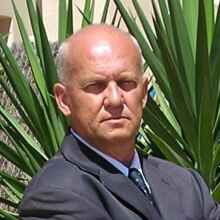How Sounds and Language Shape an Identity

Music and Art
Another proof of losing the cultural melody lies in the area of the arts. I rarely listen to Polish music as it gives me little emotional value. My favorite New York radio station, NPR, is on every day, streaming over the Internet and I cannot imagine that I could survive without having it in my daily life. American music makes my memories alive, is full of colors and makes me emotional, while the Polish one sounds like something known a long time ago but not creating any ties to it. For the same reasons, although I enjoy reading some Polish books, most of my reading of the news, magazines, books and the Internet is still being done in English.
This process of catching cultural sounds starts so early and is so intense that even after a relatively short time living in Spain (less than one year), while driving back across Europe I was struck by a somewhat different cultural melody on my car radio around the Barcelona area. Despite the fact that my Spanish was very basic, my brain could catch the different melody of Catalonian in comparison to the Spanish used in the Cartagena area, where we had lived.
For these reasons I strongly believe that our languages teaching misses one important factor, i.e. teaching language melody. This could be done by practicing sets of words which don’t need to carry any meaning, just like the sets of verbal exercises designed for actors targeted on words carrying specific sounds.

A New Perspective
After all these years of living in two different cultural worlds, I often recall the quotes made by Mark Twain and value their wisdom. Crossing cultures is the most effective way to prevent bigotry and prejudice simply because you look at your grown-up beliefs from a different angle. I don’t believe any more in the superiority of certain talents of my Polish folks, the same as I don’t believe that Americans are more gifted than others. From my perspective you can easily see in which areas one culture creates a better environment for development and creativity than the other one and vice versa. I can make a comparison, available to this extent only to an explorer of different cultures but not to one homogenous culture member. And this is the greatest reward of the process of crossing cultures.
Having this knowledge does not necessarily mean that it can be largely exploited, as different people have their own different way of listening and learning. Those which listen better and learn faster create better conditions for growth and prosperity. Those which prefer to stick to their own beliefs usually stay behind and follow the others. So in a nutshell knowledge is not a problem but you need people who want to listen.
Patriotism may be just a stage of human development which could get lost during the progress of human mentality, but what is more important – losing it may be largely beneficial for the whole human society. If this is a future direction for humans, we cross cultural explorers are simply at the frontier of a new trend and stage of civilization, just like first followers of Copernicus’ theory, which was highly politically incorrect at that time, but eventually moved the whole world into a new stage of development, which benefited us all.
It is significant that culture-crossing explorers always appreciate the gained experience, despite the fact that losing some ties with their origin causes them the discomfort of hanging between cultures and not fully belonging to any. The same effect has applied to any new idea which pushed humanity in our history – losing the comfort of traditional beliefs always causes some pain, but there have always been people who dare to take this challenge. This is a spirit of our evolution.
The final conclusion? A global mind is a mindset which is not largely popularized at the moment, as global politics still rely on traditional beliefs, but it may be the way to grow into a new, more tolerant and open-minded society. And, like any other knowledge, it can be explored, developed, taught and grown.











